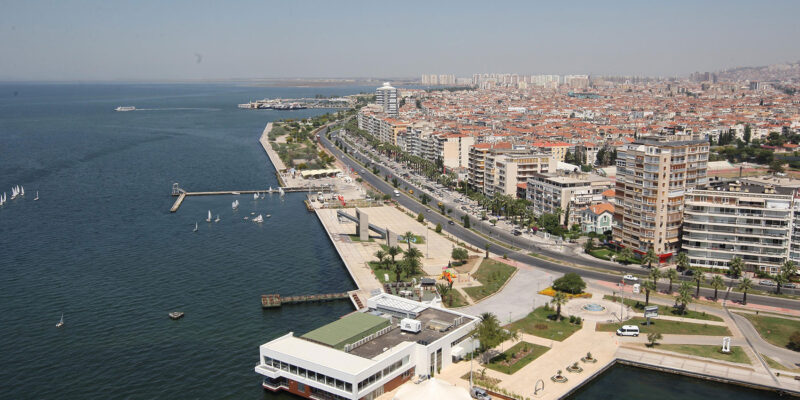GTE Carbon’s application under the UK Department of Foreign Affairs (FCO) Welfare Fund was successful. A pilot study will be carried out in Izmir Karsiyaka Municipality, and the findings & acquired information will be shared in the project, with the ultimate aim of disseminating the use of smart greenhouse gas emission reduction technologies in selected municipalities in Turkey with the aim of supporting the acceleration of the implementation of climate change strategies and action plans developed at the city scale.
Within the scope of this project, which will be carried out under the direction of GTE Carbon, in partnership with the Carbon Trust and beneficiary of Karsiyaka Municipality, it is planned to carry out capacity building studies on the evaluation and prioritization of smart climate change mitigation technologies in cities in Turkey; In this context, it is aimed to determine a road map suitable for Karsiyaka Municipality and its conditions. The main outputs of the project are summarized as follows:
Output 1 – Inventory of Karsiyaka Municipality’s past work on climate change and sustainability (and greenhouse gas) and preparation of a reference status report.
Output 2 – Strengthening the knowledge, evaluation, and prioritization capacity of Karsiyaka Municipality personnel (and relevant city representatives from the Turquoise Cities project) regarding smart mitigation technologies.
Output 3 – Prioritizing the most appropriate smart mitigation technologies in the context of Karsiyaka Municipality & conducting feasibility studies for the most critical ones in terms of technology and economy.
Output 4 – Dissemination of project outputs & strengthening communication and cooperation between relevant Turkish and UK institutions around smart cities and related sub-topics.
Representatives of municipalities included in the Turquoise Cities project supported by the Ministry of Environment and Urbanization will also be invited to the works within the scope of the project, which will be supported by the British Embassy Welfare Fund, thus ensuring the rapid dissemination of the acquired knowledge.
